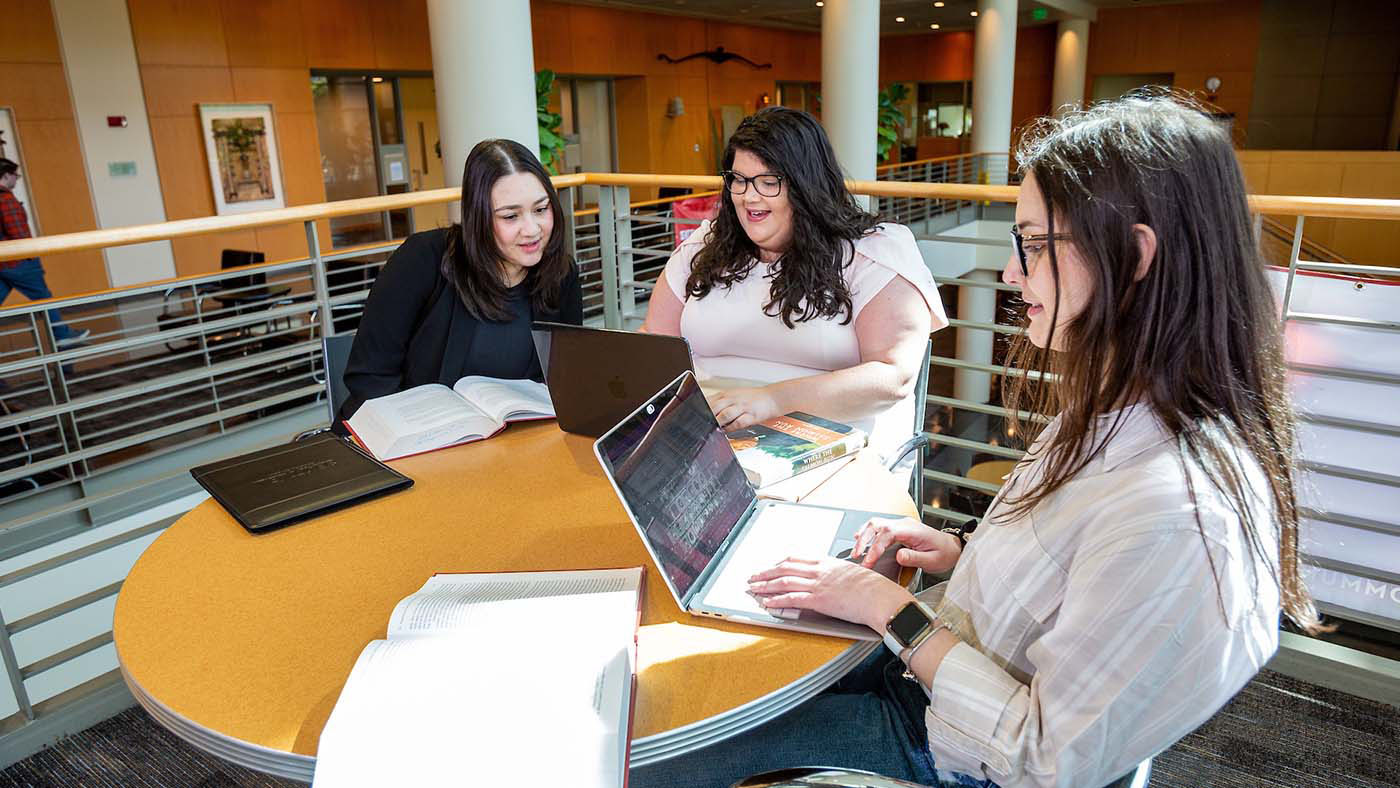Seattle University School of Law leaders and alumni played key roles in developing and advocating for reforms to the state’s licensure process for new attorneys that culminated in sweeping changes ordered by the Washington Supreme Court.
According to the court’s announcement, Washington is now one of only two states that have adopted alternatives to the traditional bar exam. These changes are among the most comprehensive in the history of the state, as this is the first time ever that lawyers will no longer be required to take and pass a traditional bar examination to practice law.
This seismic shift resulted from efforts by the Bar Licensure Task Force, formed in 2020 by the court and co-chaired by Seattle U Law Dean Anthony E. Varona, to develop a set of recommendations for bar licensure reform after studying the efficacy of the Washington lawyer bar exam in several ways, including reviewing passage rates, analyzing bar exam methods, and examining alternatives to the traditional exam. Task force members presented their recommendations to the court in October of 2023.
"I am very pleased that the Washington Supreme Court adopted the Task Force's recommendations, and am proud of our Task Force,” Varona said. “This was a multiyear endeavor that involved a lot of research, consultation, and deliberation, that resulted in new licensure pathways that protect the public, address our serious legal deserts problem in Washington, help remedy the fairness and bias concerns with the traditional licensure methodology, and give students a choice of licensing modalities to best demonstrate their competencies. I applaud the Washington Supreme Court for, once again, breaking new ground and serving as a model for the rest of the nation."
In agreeing with many of the task force’s recommendations, which were deliberated and voted on by members at a full-day Task Force retreat hosted by Seattle U Law last year, the court found that the bar exam “disproportionately and unnecessarily blocks marginalized groups from entering the practice of law, and the traditional bar exam is at best minimally effective for ensuring competent lawyers,” according to the court’s announcement.
“Multiple studies have shown that the bar exam has a disproportionate impact on candidates of color, such that Black, Latino, and Asian candidates pass with scores substantially less than those of white candidates,” said Jeffrey Minneti, associate professor of law and assistant dean for Academic Excellence and Bar Success.
The court’s orders provide for the following reforms:
- Adopt the National Conference of Bar Examiners’ NextGen bar exam beginning summer of 2026, which will place more focus on client-centered skills and law practice.
- Develop three bar exam alternatives, rooted in experiential learning, for law school graduates, law school students, and APR 6 law clerks.
- Allow graduates to complete a six-month apprenticeship supervised by qualified attorneys, and complete three courses, in lieu of the exam.
- Allow students to waive the bar exam and graduate ready to practice law by completing 12 skills credits and 500 hours of work as a licensed legal intern, after which they submit a portfolio.
- Allow law clerks enrolled in a non-law school course of study to waive the bar exam by completing additional standardized educational materials and benchmarks, completed under the guidance of tutors that complement the apprenticeship requirements for law school graduates, plus 500 hours of work as a licensed legal intern.
- Adopt assessments and programs and conduct research to ensure lawyers are competent throughout their careers.
- Reduce the required years of experience for out-of-state licensed attorneys to be licensed in Washington from three years to one.
- Reduce the current bar exam minimum passing score to 266 (from 270).
“What a great day for future attorney licensure candidates! We took a strong step toward a more equitable and effective licensing process,” Minneti said. “Given Seattle U Law’s longtime strengths in legal writing and experiential education, and the faculty's commitment to providing a client-centered approach to their courses, our law school is well poised to equip students for success on each licensure path.”
In addition to Varona and Minneti, other task force members with ties to Seattle U Law include three alumni: Brent Williams-Ruth ’01, founding attorney at the Law Offices of Brent Williams-Ruth; Efrain Hudnell ’20; and Kameron Powell ’23, who recently sat for the bar exam. Professor Robert Chang, executive director of the Fred T. Korematsu Center for Law and Equality, was an early member of the task force.

